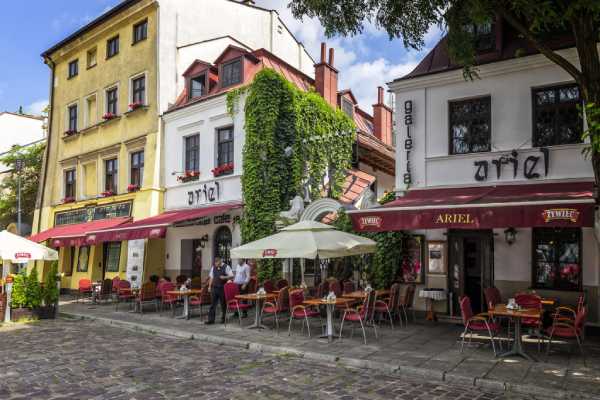Police Salary Structure In Canada 2024 [Rank Based]
This post is centered on the current police salary in Canada. The aim of a state’s police force is to uphold the law, protect the lives, health, and properties of its residents, and put a stop to criminal activity and other forms of civil unrest.
The state gives its police force the authority to carry out its mission. Their authorized capabilities include being able to arrest people and using force in ways that are sanctioned by the state thanks to its monopoly on the use of force.
Police forces are authorized to exercise the power of that state within a defined legal or territorial area of responsibility.
![Police Salary Structure In Canada [Rank Based]](https://naijaxtreme.com/wp-content/uploads/2022/12/police-salary-structure-in-canada-img_172255-min.jpg)
In other words, it is up to these police forces to keep law and order in the area of responsibility set by the state.
Read Also: The 10 Highest Paying Jobs In Canada
As we all know, there is a distinction between the police forces and the armed forces, or any other groups that directly or indirectly protect the country from outside threats.
Also, each and every one of these groups has its own salary structures and ranks.
In this article, our concentration will be on the police force. We will be looking at their ranks, the responsibilities that come with these ranks, and the police salary structure in Canada. So keep reading to be enlightened.
Police Salary Structure In Canada Based On Ranks
In Canada, there are several ranks available for police officers and we are going to work our way down from the top position, which is the commissioner.
Police Commissioner’s Salary in Canada
Being promoted to the position of police commissioner is every policeman’s dream.
A police commissioner can also be addressed as the commissioner of police. In Canada, it is the highest rank in the police force.
The responsibilities of a police commissioner in Canada include;
- Planning, organizing, directing, controlling, and evaluating operations of a police force or division of a police force.
- Creating and putting into action the policies and procedures for the police force.
- Evaluating the work of subordinates and giving approval for any promotions, transfers, or disciplinary actions that may be needed.
A Police Commissioner in Canada can make anywhere from $96,053 to $171,996 per year, or $68 per hour, depending on their level of experience.
Master’s degrees are typically required for promotion to the position of Police Commissioner.
Police Superintendent’s Salary in Canada
The rank of superintendent is one step up from that of assistant Superintendent in the hierarchy of police officers.
The superintendent (SP) is in charge of overseeing the day-to-day operations of his CID’s crime and special branches.
At predetermined intervals, he provides the DIG (Intelligence) with frequent updates and information.
Other responsibilities of a police superintendent include;
- Shaping the culture, climate, and ways of working in their regions in order to make sure that standards are followed and to encourage responsibility and continuous quality improvement.
- Judging the work of his administrative staff and taking disciplinary action when and where it is needed.
A police superintendent in Canada can make anywhere from $90,053 to $105,115 per year, with the average salary falling somewhere in the middle of that range.
The highest degree of education that a police superintendent typically possesses is equivalent to that of a master’s degree.
Police Assistant Superintendent’s Salary in Canada
The Assistant Superintendent is in charge of the operational policing of significant or critical events or occurrences and plays a pivotal role in this capacity.
The following is a list of the responsibilities of an assistant police superintendent:
- Ensuring that a sufficient supply of vehicles, weaponry, communications equipment, and other equipment, as well as other accessories such as uniforms, are in good condition.
- Working on programs to make police officers’ lives better and gives incentives to his subordinates to get them to do a better job.
A police assistant superintendent makes anywhere from $63,000 to $102,000 per year in Canada, depending on their level of experience and education.
The highest level of education that a police assistant superintendent typically possesses is a master’s degree.
Police Inspector’s Salary in Canada
Police Inspectors are in charge of managing portfolios and teams made up of sergeants, constables, and other members of the police force.
This person may be the senior operations officer or be in charge of managing assigned specialized policing responsibilities.
This position comes with a number of special legislative capabilities that make it possible to keep the peace and prevent disorder.
The following is a list of other responsibilities of a police inspector:
- planning, supervising, and overseeing operational policing action are the inspectors’ primary responsibilities.
- making sure that resources are sent to situations, especially big ones, in a way that is both effective and efficient.
- Managing risk effectively and taking steps to reduce it in order to keep officers, staff, and members of the public safe and healthy and to deal with problems, incidents, and criminal activity in the best way possible.
The annual salary range for a police inspector in Canada is between $60,926 and $100,790, and the hourly rate is $50.
The highest degree of education that a police inspector typically possesses is a degree from an accredited college.
Police Detective’s Salary in Canada
A detective is a higher-ranking member of the police force than a sergeant.
The responsibilities of a police detective include;
- Conducting in-depth investigations of criminal activity and other infractions of municipal, federal, or state law.
- Evidence gathering, examination, and storage.
The average salary for a police detective in Canada is somewhere in the range of $58,518 to $99,758 per year.
The highest level of education attained by a police detective is often equivalent to that of a college graduate.
Police Sergeant’s Salary in Canada
The rank of sergeant is the first level of line management in the policing profession.
As such, sergeants play a crucial role in ensuring that officers and employees are effectively supervised, guided, and supported on a daily basis.
The following are some of the duties of a police sergeant;
Allowing their team to get better at what they do while also making sure that organizational standards are met and goals are reached.
- Coordinating, monitoring, and, where necessary, responding to the action of front-line police officers in order to ensure compliance with the law.
- Fostering public confidence in policing and improving public safety in accordance with established legal frameworks and policy standards.
- Supervising a group of people, seeing to it that they are healthy and happy, making sure they are growing professionally, and maintaining high levels of motivation in order to run an efficient frontline police service.
A police sergeant in Canada can make anywhere from $54,355 to $88,416 per year, or $36.24 per hour, depending on their level of experience and education.
The highest level of education that a police sergeant typically possesses is a certificate from an accredited high school.
Police Constable’s Salary in Canada
The position of police constable is the entry-level position in the police force.
A police constable will almost certainly have close relationships with the communities they serve.
The following is a list of the responsibilities of a police constable:
- Providing reassurance while simultaneously acting as a deterrent against criminal activity.
A police constable in Canada can make anywhere from $51,387 to $79,678 per year, or $29.29 per hour, depending on their rank and experience.
A police constable usually has the same level of education as someone with a high school certificate.
Read Also: Police Officer Salary In The United Kingdom [Rank Based]
FAQs
You can join the police force in Canada with just a high school certificate.
A police officer’s salary in Canada is between$79,678 to $171,996.
Commissioner is the highest police rank in Canada.





![How to Set Up a Car Wash Business In Nigeria [Easy Guide]](https://naijaxtreme.com/wp-content/uploads/2023/10/how-to-set-up-a-car-wash-business-in-nigeria-easy-guide-img_118282.jpg)

